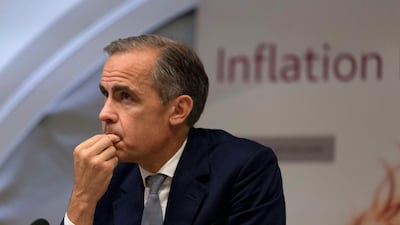Mark Carney, the former Bank of England governor, believes Brexit is partly to blame for the persistent high inflation levels in the UK.
The statement was made during an interview with the Telegraph.
Mr Carney, who headed Britain's central bank from 2013 to 2020, had been an outspoken critic of the UK's separation from the European Union.
He spoke of a sharp drop in house prices, a severe recession, and escalating inflation as possible outcomes.
In recent comments, Mr Carney attributed the combination of Europe's energy crisis, supply shocks, and especially Brexit as significant contributors to the UK's current economic situation.
He emphasised the unique nature of the impact Brexit has had on the country's economy, saying: “We laid out in advance of Brexit that this will be a negative supply shock for a period of time and the consequence of that will be a weaker pound, higher inflation and weaker growth.
“There’s no joy in saying: 'we told you so,' because people are having to live with that reality.”
The prospect of interest rate rises
With the UK experiencing higher-than-expected inflation and wage data, the Bank of England is being set up for base rate increases.
Investors are anticipating more than a full percentage point of increases over the following year, which could elevate the benchmark lending rate to a two-decade high.
Mr Carney predicts that consumers should be prepared for increased borrowing costs as rates are likely to stay high for the foreseeable future.
His recent comments were made in line with his previous statement to ITV, suggesting a long-term high rate environment.
Not everyone agrees with Mr Carney's assessment of Brexit's role in the UK's inflation.
Jacob Rees-Mogg, the former business secretary, said Mr Carney's description of Brexit was “obviously nonsense”, instead pointing to the Bank's failures as the culprit for worsening Britain’s cost of living crisis.
Amid these inflationary pressures, the government, through Chancellor Jeremy Hunt, has expressed its commitment to support the central bank's effort to manage inflation.
Mr Hunt recently stated that the UK has “no alternative” but to increase interest rates in an attempt to curb inflation.
Households across the UK are preparing for a possible increase in rates, which sit at a 14-year high of 4.5 per cent.


